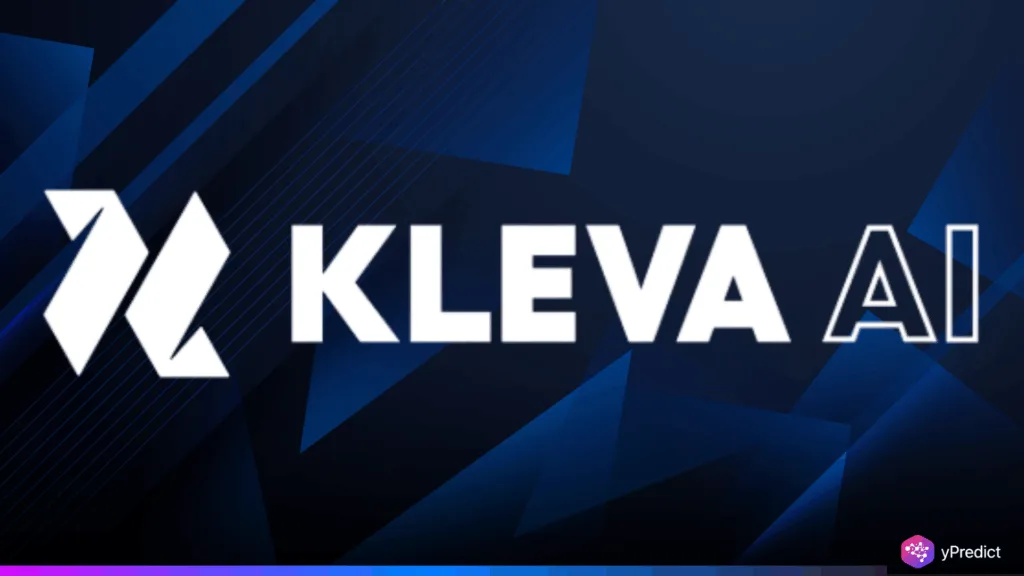
Kleva AI has just released an updated whitepaper that sets the stage for its first product launch, Tikkly. Published in both Korean and English, the document details the company’s vision of building a DeFAI platform—an intersection of decentralized finance and artificial intelligence. By developing the AI agents that will automate social media usage, digital networking, and trading strategies, Kleva AI will allow users to leverage their digital holdings and turn them into influence and income. This press release, dated August 25, 2025, indicates that the company is ready to enter the market and reveals how AI and blockchain are likely to come together in practice.
Kleva AI’s Platform Vision
Kleva AI positions itself as more than a traditional finance or AI startup. Its stated goal is to create a secure, simple, and inclusive asset management platform powered by intelligent agents. Unlike passive financial tools, these agents are trained for individual users, adapting to their goals and habits. Examples given include social media engagement automation for freelancers, portfolio promotion for creators, and market trading automation for investors.
The company highlights real-world use cases to illustrate impact. A digital investor reports higher investment returns and less time spent monitoring markets after using Kleva AI’s automated trading system. Similarly, a freelance designer achieves more project inquiries and extra hours of free time thanks to AI-driven networking support. These examples reflect a core theme: users gain income and efficiency while delegating repetitive or complex tasks to customized agents.
Kleva AI also emphasizes decentralization. Instead of entrusting wealth management to a central institution, the platform distributes responsibility across secure blockchain-based systems. In theory, this reduces risk while giving users more control. From Kleva AI’s perspective, the combination of personalization, automation, and decentralized infrastructure is what sets the company apart. It turns digital tools into partners in both personal branding and finance.
Opportunities and Challenges
The whitepaper by Kleva AI is timely, as there is fast development in AI and the financial sector. The development of quantum computers (topological qubit research in particular) suggests more reliable and faster calculations that could be used to drive AI agents and improve their performance in activities such as trading. Assuming that such breakthroughs can be integrated into Kleva AI, its service will exceed the competition by empowering its users with timely and more accurate financial planning.
But opportunities sit next to challenges. Automating trading and social engagement creates concerns over ethics, security, and data transparency. A common risk with AI systems is bias inherited from historical training data. In finance, this could distort outcomes, leaving some users disadvantaged. Regulations such as GDPR put strict rules on data use, though Kleva AI’s decentralized model might complicate compliance.
Another risk lies in unintended market manipulation. Automated trading at scale could increase volatility, while algorithmic activity on social platforms might amplify influence campaigns. Without strong ethical safeguards, market and reputational risks are high. The whitepaper references clarity and strategic direction, which may include feedback systems or auditing mechanisms. Kleva AI needs these guardrails to build trust. For users and regulators alike, the platform’s ability to balance innovation with responsibility may determine whether it becomes sustainable or disruptive.
Conclusion
Kleva AI’s updated whitepaper marks a turning point for the platform. With Tikkly on the horizon, the company is laying out a bold attempt to merge AI automation with decentralized finance. According to real-life case studies, an increased productivity in creative, social, and financial activities and improvement of earnings are plausible. However, there are still obstacles to privacy, prejudices, and controls. There is a crystal clear promise, but the risks are also clear. In the evolution of AI and DeFi, it will be interesting to follow how Kleva AI achieves transparency, trust, and compliance, and whether it has a long-term sustaining effect as opposed to drawing short-term interest.






